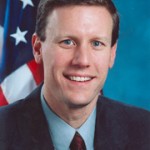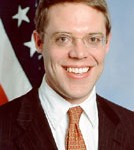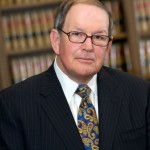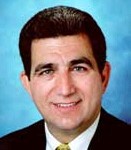For many Central New York voters, the November election offers no choices for their state senators and Assembly representatives.
The reason: The incumbents are unopposed.
This could be bad for democracy, voter advocates and political scientists say. “It is dangerous for democracy when over time there is no turnover, there are no opposed races” said Kristi Anderson. For candidates such as Sen. David Valesky, D-Oneida, it is not as bad, Andersen said, because he has been opposed in most of his previous elections.
This is the first election since the state’s voting districts were redrawn. The candidates will be running in their new districts. In the state Senate, the unopposed local incumbent is Valesky in the 53rd State Senate District. In the state Assembly, the unopposed CNY legislators are William Barclay, R-Pulaski, in the 124th State Assembly District; Gary Finch, R-Springport, in the 123rd State Assembly District; and Bill Magnarelli, D-Syracuse, in the 129th State Assembly District.
The election is Nov. 6.
Here are snapshots of the four unchallenged incumbents:
 David J. Valesky (53rd State Senate District, Democrat)
David J. Valesky (53rd State Senate District, Democrat)
Sen. David Valesky, D-Oneida, was elected to the state Senate in 2004 in what was then 49th state Senate District. The new 53rd state Senate District includes all of Madison County, parts of Oneida County, and the southeastern corner of Onondaga County.
During redistricting, Valesky lost some GOP voters and gained some Democratic voters, making his seat safer for his re-election if he had been opposed. This is the first election he has been unopposed.
Valesky received a bachelor’s degree from SUNY Potsdam and a master’s from the University of Connecticut.
Even before his own election to the state Senate, Valesky had a long relationship with Albany politics. From 1989 to 1995, Valesky was an aide to former State Assembly Majority Leader Michael Bragman. After leaving this position, he became vice president of communications at WCNY-TV/FM until 2004. During that time he also hosted a midday talk show known as “Hour CNY.”
In the state Senate, Valesky is the chair of the Temporary Committee on Rules and Administration Reform. He is also a member of committees on agriculture; cultural affairs, tourism, parks and recreation; energy and telecommunications; finance; health; local government; rules; and transportation.
Last year, Valesky and three other Senators left the Democratic caucus to form their own. Senators Jeffrey Klein (D-Bronx); Diane Savino (D-Staten Island); David Carlucci (D-Rockland) all joined Valesky to create the Independent Democratic Conference in order to protest leadership within the state Senate. The four formed the group to break the gridlock in the senate and find solutions to the problems the state faced, according to Valesky’s website.
Valesky has recieved an endorsement from the National Federation For Independent Business.
Valesky did not respond to interview requests for this story.
 William Barclay (120th State Assembly District, Republican)
William Barclay (120th State Assembly District, Republican)
Assemblyman William Barclay was first elected in 2002. His district formerly was the 124th State Assembly District. His new district includes areas in Onondaga, Oswego and Jefferson counties.
Barclay is on the board of directors for the Friends of the Rosamond Gifford Zoo at Burnet Park, Northern Oswego County Health services and the Everson Museum of Art.
He has degrees from both St. Lawrence University and Syracuse University College of Law.
After law school, Barclay was a clerk for Roger Miner, a judge of the United States Court of Appeals in the Second Circuit. He is a partner of the law firm Hiscock and Barclay and is a board member of Panthus Corporation and QMP Enterprises.
Assemblyman Barclay did not respond to interview requests for this story.
 Gary Finch (123rd State Assembly District, Republican)
Gary Finch (123rd State Assembly District, Republican)
Assemblyman Gary Finch has been in the New York State Assembly since 1999.
Before redistricting, he represented the then-123rd State Assembly District. His new 126th State Assembly District includes parts of Chengo, Cortland, Onondaga, and Cayuga counties.
Finch has been endorsed by the New York State Public Employees Federation.
He is a member of committees on agriculture; economic development; job creation; insurance and rules; environmental conservation; and commerce and industry.
He received a bachelor’s degree in public administration and political theory from SUNY Empire State College.
Finch previously served as a village of Aurora trustee He was mayor of Aurora for eight years. In the state Assembly, Finch is the GOP’s assistant minority leader.
Assemblyman Finch did not respond to interview requests.
 Bill Magnarelli (129th State Assembly District, Democrat)
Bill Magnarelli (129th State Assembly District, Democrat)
Assemblyman Bill Magnarelli has been in the state Assembly since 1998.
Magnarelli’s district did not change much during redistricting. He formerly represented the 120th State Assembly District. His district now is the 129th State Assembly District. It still covers most of Syracuse except for two streets that have now gone to the 128th state assembly district represented by Sam Roberts, D-Syracuse. Magnarelli’s district also includes the towns of Geddes and Van Buren.
Magnarelli is the chair of the Vetern’s Affairs Committee. He also was previously the chair of the Ethics Committee and of the Task Force on University- Industry Cooperation.
Magnarelli has endorsements include the Veterans Party; American Federation of State, County and Municipal Employees; Planned Parenthood; and National Association of Social Workers New York State Chapter.
He has a bachelor’s degree in history and a law degree from Syracuse University.
Before being elected to the state Assembly, Magnarelli was the majority leader on the Syracuse Common Council. In 2007, he also ran unsuccessfully against Republican Joanie Mahoney for Onondaga County executive.
As a candidate running unopposed, Magnarelli is still making efforts to reach out to constituents, said his campaign manager, Christine Fritz.
“He’s very much engaged,” she said. “He feels he owes voters in his district a job-performance report.” Turnout is often low when candidates are unopposed, she said. But, Fritz added, “You still have to say to people you want them to come to the polls.”
(Jamie Hoskins is graduate student in broadcast and digital journalism.)
-30-


